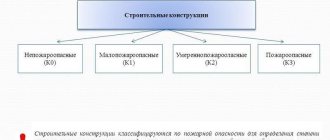lease and rental agreements for residential premises drawn up by the portal’s lawyers
Any civil law contract is based on the mutual rights and obligations of the parties. In this article we will compare the rights and obligations of the lessor in a lease agreement and the lessor in a residential tenancy agreement.
If you want to study the lease and rental agreements themselves in more detail, we suggest you read the relevant articles posted on our portal. The main difference is that the lease agreement is concluded with legal entities , and the rental agreement is concluded with citizens .
Rights and obligations of the lessor
The rights and obligations of the lessor are described in Chapter. 34 Civil Code of the Russian Federation.
Landlord's responsibilities
The first responsibility of the landlord is to provide the tenant with an apartment in a condition consistent with the terms of the contract and its purpose. (Clause 1 of Article 611 of the Civil Code of the Russian Federation). That is, the apartment must be, at a minimum, suitable for living.
The landlord is obliged to inform the tenant about all existing defects in the property when concluding the contract. Otherwise, he may be held liable in accordance with paragraph 1 of Art. 612 of the Civil Code of the Russian Federation.
Another important responsibility of the lessor is to carry out major repairs (clause 1 of Article 616 of the Civil Code of the Russian Federation). But the same article states that the lease agreement can also provide for a different procedure for paying for major repairs.
When the contract expires, the lessor has an obligation to conclude a contract for a new term. (Article 621 of the Civil Code of the Russian Federation) If the lessor refuses the tenant who has applied with written notice of concluding an agreement for a new term, and within a year enters into a lease agreement with another person, then the tenant may demand the transfer of rights and obligations under the new agreement to himself or compensation losses. However, the contract may provide for a different procedure for extension.
Landlord's rights
Of course, the landlord has the right to demand timely payment of rent. But the civil code also stipulates other rights.
In case of non-return of property, the lessor may demand compensation for losses caused (Article 622 of the Civil Code of the Russian Federation).
As for termination of the contract, the lessor has the right through the court to demand termination of the contract in cases where the tenant: (Article 619 of the Civil Code of the Russian Federation)
- uses the property in material violation of the terms of the contract;
- significantly deteriorates the property;
- fails to pay rent more than two times in a row;
- does not carry out major repairs of the property (if such a condition is included in the contract).
Rights and obligations of the landlord
In the rental agreement, the party renting out the apartment is called the lessor (clause 1 of Article 671 of the Civil Code of the Russian Federation). The rights and obligations of the lessor are set out, respectively, in Chapter. 35 Civil Code of the Russian Federation.
Landlord's responsibilities
Let's start with responsibilities again. Just like the landlord, the landlord is obliged to hand over the apartment in a condition that complies with the terms of the contract and is suitable for habitation (clause 1 of Article 676 of the Civil Code of the Russian Federation).
The landlord is obliged to carry out major repairs of the apartment, unless otherwise provided by the terms of the contract (clause 2 of Article 681 of the Civil Code of the Russian Federation). Another obligation related to repairs is the repair of common property in the building where the apartment is located (clause 2 of Article 676 of the Civil Code of the Russian Federation).
Like the lease agreement, the lease agreement provides for the obligation of the lessor to renew the lease agreement upon expiration of its term. If the landlord refuses to renew the contract and within a year enters into a rental contract for residential premises with another person, the tenant has the right to demand that such contract be declared invalid and (or) compensation for losses caused by the refusal to renew the contract with him. (Article 684 of the Civil Code of the Russian Federation). But unlike the norm regarding the lease agreement, this article does not give the parties the right to stipulate in the agreement a different procedure for renewal.
Landlord's rights
The rights of the lessor are, in general, similar to the rights of the lessor, but this form of agreement still provides for less freedom. So in Art. 687 of the Civil Code of the Russian Federation strictly establishes the grounds on which a rental agreement can be terminated in court at the request of the lessor:
- failure by the tenant to pay for the residential premises for six months, and in case of short-term rental, in case of failure to pay more than two times after the expiration of the payment period established by the contract;
- destruction or damage to residential premises by the tenant or other citizens for whose actions he is responsible;
- use by the tenant or other citizens for whose actions he is responsible of the residential premises for other purposes or with systematic violation of the rights and interests of neighbors (but in this case the landlord has the right to demand termination of the contract only after warning the tenant).
Please note that the rights of the lessor, unlike the rights of the lessor, depend on the term of the contract .
A separate agreement stands out for the short-term rental of residential premises, that is, concluded for a period of up to 1 year (clause 2 of Article 683 of the Civil Code of the Russian Federation). Under such an agreement, the lessor no longer has the obligation to conclude an agreement with the lessee for a new term, that is, the lessor can refuse to conclude a new agreement without any subsequent sanctions.
Have questions? – ask them to the portal’s lawyer
Eviction and move-in: legal nature, grounds and consequences
(Ends. Starts in No. 3 2017)
TYPES OF EVICTION
Our legislation in accordance with the gradation provided for in Art. 84 of the Housing Code, the eviction of citizens from residential premises provided under social tenancy agreements is traditionally divided into types:
•with the provision of other comfortable residential premises under social tenancy agreements;
•with the provision of other residential premises under social rental agreements;
•without providing other residential premises.
Let us emphasize that although the types of evictions are given only in relation to social tenancy agreements, i.e. in relation to Art. 84 of the Housing Code of the Russian Federation, judicial practice takes into account the types of evictions and when filing claims for eviction of persons who have entered into other rental agreements, for example, those living on the basis of a specialized rental agreement.
The court must also take into account the types of eviction when a claim for eviction is filed on grounds that provide for eviction with the provision of another residential premises (well-equipped or not, it does not matter), but this premises itself, where it is necessary to evict, is not named in the claim.
In paragraph 36 of the Resolution of the Plenum of the Supreme Court of the Russian Federation dated July 2, 2009 No. 14 “On some issues that have arisen in judicial practice when applying the Housing Code of the Russian Federation,” it is established that when accepting a statement of claim for the eviction of citizens from residential premises occupied by them under a social contract rental, with the provision of other comfortable residential premises (Article 85 of the Housing Code of the Russian Federation) or other residential premises (Article 90 of the Housing Code of the Russian Federation) under social tenancy agreements, the judge must check whether the application indicates a specific residential premises free of the rights of other persons, in which Citizens may be evicted. In the absence of such instructions, the judge, in accordance with Art. 136 of the Code of Civil Procedure of the Russian Federation issues a ruling to leave the application without progress, notifies the plaintiff of this, and provides him with a reasonable period of time to correct the deficiency in the application. If the judge's request is not fulfilled, the application is considered not filed and is returned to the plaintiff.
From the practice of the author of the publication, however, it follows that this circumstance is not always taken into account by judges. Thus, when considering a difficult case in a district court, where both a ten-year-old decision on the provision of housing (based on a violation of the procedure for providing residential premises) and a social tenancy agreement were challenged, the judge, when accepting the claim for proceedings, did not pay attention to the fact that if the claim is satisfied, eviction on these grounds, it is carried out only with the provision of another comfortable residential premises, since according to the content of the claim, the tenant was not blamed for his illegal actions in obtaining housing (the state departmental organization that allocated the apartment was blamed for the violations). But this other premises was not named in the lawsuit. There was not even a description of the type of eviction - “with provision” or “without”. At the request of the author of the article, the court rejected the claim citing the expiration of the statute of limitations for eviction. But if the court had come to a different decision in the deliberation room, it would inevitably have fallen into a legal trap: it is necessary to evict with provision, but - where?!
LEGAL BASIS FOR EVICTION
The legal grounds for eviction are specific legal facts with which the law connects the need to forcibly vacate the occupied home (let us again recall the already mentioned constitutional principle that “no one can be arbitrarily deprived of their home”).
These specific legal facts, only upon the occurrence of which a citizen and members of his family can be evicted, serve as a guarantee against arbitrary deprivation of housing prohibited by the constitution. It follows from this that the court is obliged, when considering court cases, to each time check the existence of such facts that provide grounds for deprivation of housing on behalf of the state.
The Supreme Court of the Russian Federation orients law enforcement practice on the fact that the termination of a social tenancy agreement for residential premises and the eviction of citizens from it at the request of the landlord or state authorities and local governments, as follows from the provisions of Part 4 of Art. 3 of the Housing Code are possible only on the grounds and procedure established in the Code (Articles 29, 83, 85–91 of the Housing Code of the Russian Federation; see also: “Eviction of citizens from residential premises”, Tikhomirov M.Yu.).
In this regard, it is necessary to inform our respected readers that, in the opinion of the author of the publication, the Housing Code did not cover all the grounds for eviction (for example, without indicating such grounds as eviction in connection with the invalidation of a decision on the provision of housing and an agreement based on this decision social hiring). In this regard, the Plenum of the Supreme Court of the Russian Federation, to some extent, had to fill these gaps with reference to the analogy of the law. And the example given is not the only one. The grounds for eviction by the owner of the property, i.e. eviction from a private housing stock, are especially poorly developed in the law.
Since the legal grounds for eviction differ significantly depending on the housing stock from which citizens are evicted, and on the basis of which agreement they used the residential premises, we will analyze these grounds depending on these circumstances.
LEGAL BASES FOR EVICTION FROM RESIDENTIAL PREMISES USED ON THE BASIS OF OWNERSHIP
According to Part 1 of Art. 32 of the Housing Code of the Russian Federation, residential premises may be seized from the owner through redemption in connection with the seizure of the corresponding land plot for state or municipal needs. The purchase of part of a residential premises is permitted only with the consent of the owner. Depending on for whose needs the land plot is seized, the purchase of residential premises is carried out by the Russian Federation, the relevant constituent entity of the Russian Federation or a municipal entity. The obligation to prove that the decision made to confiscate a land plot is due to state or municipal needs and the use of this land plot for the purposes for which it is confiscated is impossible without termination of ownership of the corresponding residential premises (Articles 49, 55 of the Land Code of the Russian Federation, Clause 1 of Article 239 of the Civil Code of the Russian Federation), with the exception of cases provided for by law (for example, parts 10–11 of Article 32 of the Housing Code of the Russian Federation), is assigned to a state body or local government body. Taking into account that the legal consequence of the seizure of residential premises belonging to him from the owner through redemption is his eviction from this residential premises, to participate in the case, based on the norms of Part 3 of Art. 45 of the Code of Civil Procedure of the Russian Federation, a prosecutor must be involved (see subparagraphs “f” and “g” of paragraph 20 of the Resolution of the Plenum of the Supreme Court of the Russian Federation dated July 2, 2009 No. 14 “On some issues that arose in judicial practice when applying the Housing Code of the Russian Federation” ).
In accordance with Part 1 of Art. 35 of the Code, in the event that a citizen’s right to use residential premises is terminated on the grounds provided for by the Code, other federal laws, an agreement, or on the basis of a court decision, this citizen is obliged to vacate the corresponding residential premises (stop using it). If this citizen does not vacate the said residential premises within the time period established by the owner of the relevant residential premises, he is subject to eviction at the request of the owner based on a court decision.
The most common eviction on this basis is the expiration of the period of residence.
A type of eviction due to the expiration of the period of residence (which has its own characteristics established by law) is the eviction of citizens who lived in residential premises under a testamentary refusal. A citizen who, by testamentary refusal, has been granted the right to use residential premises for the period specified in the relevant will, uses this residential premises on an equal basis with the owner of this residential premises. Upon expiration of the period of use of the residential premises established by the testamentary refusal, the right to use it from the corresponding citizen is terminated, except for cases where the right to use this residential premises from the corresponding citizen arose on another legal basis (Article 33 of the Housing Code of the Russian Federation).
Another type of eviction after the expiration of the period of residence is the eviction of a former family member of the owner of the property (Part 4 of Article 31 of the Housing Code of the Russian Federation). The right to use residential premises belonging to the specified owner may be reserved for a former member of his family for a certain period based on a court decision.
It is also possible to evict a citizen who used residential premises on the basis of an agreement with the owner of the premises. Such a citizen has rights, bears duties and responsibilities in accordance with the terms of such an agreement (Part 7, Article 31 of the Housing Code of the Russian Federation). This agreement can also be oral. But it may ever expire. That's when the eviction comes.
If a citizen using residential premises on the basis of a court decision made taking into account the provisions of Part 4 of Art. 31 of the Housing Code of the Russian Federation, or on the basis of a testamentary refusal, uses this residential premises for other purposes, systematically violates the rights and legitimate interests of neighbors or mismanages the residential premises, allowing it to be destroyed, he can be evicted at the request of the owner of the residential premises after a warning from the owner of such a citizen .
Another type of eviction from a private housing stock is the eviction of their residential premises for commercial use (provided on the terms of paid use and under other agreements by the owners of such premises to persons for possession and (or) use - clause 4, part 3, article 19 of the Housing Code of the Russian Federation ).
LEGAL BASES FOR EVICTION FROM RESIDENTIAL PREMISES USED ON THE BASE OF MEMBERSHIP RELATIONS IN A HOUSING COOPERATIVE
A member of a housing cooperative who has not paid the share contribution in full and has been expelled from the housing cooperative on the grounds specified in Part 3 of Art. 130 of the Code, as well as his family members living with him, lose the right to use residential premises in the house of the housing cooperative and are obliged to vacate this residential premises within two months from the date the cooperative makes a decision to exclude such a member from the housing cooperative (Part 1, Article 133 Housing Complex of the Russian Federation). In the event of an oral or written refusal to vacate, such persons are subject to eviction without the provision of other residential premises.
In the event of demolition of a cooperative house on the grounds provided for by the Housing Code of the Russian Federation, members of the cooperative who have fully paid their share contributions are subject to eviction and are provided with other premises in the manner established for owners of residential premises (Article 32 of the Housing Code of the Russian Federation).
In the event of demolition of a cooperative house on the grounds provided for by the Housing Code of the Russian Federation, members of the cooperative who have not fully paid their share contributions are subject to eviction and are provided with other premises under social tenancy agreements (Articles 86, 89 of the Housing Code of the Russian Federation).
LEGAL BASES FOR EVICTION FROM RESIDENTIAL PREMISES PROVIDED UNDER SOCIAL TENANCE CONTRACTS
We emphasize that the legal grounds for eviction from residential premises provided under social tenancy agreements are better developed than other legal grounds in judicial practice, although in practice they are becoming less and less common due to the fact that in the country, as a result of the privatization process (which recently became not only free, but also indefinite) the housing stock for social use is rapidly decreasing. There are more and more owners of residential premises whose evictions are carried out uncompromisingly and harshly (which requires a more careful study of the rights of users of such residential premises). More and more disputes are arising between owners of residential premises with attempts to get rid of (and therefore evict) “minority” owners.
It is simply impossible to analyze all the legal grounds for eviction from residential premises provided under social tenancy agreements within the framework of one publication. Therefore, we will try to at least identify them (especially taking into account the fact that not all of them are directly named in the Housing Code of the Russian Federation).
Citizens are evicted (Article 85 of the Housing Code of the Russian Federation) from residential premises with the provision of other comfortable residential premises under social tenancy agreements if:
•the house in which the living space is located is subject to demolition;
•residential premises are subject to transfer to non-residential premises;
•the residential premises are recognized as unfit for habitation;
• as a result of major repairs or reconstruction of the house, the living space cannot be preserved or its total area will decrease or increase.
The eviction of a tenant and his family members living with him from a residential premises with the provision of another residential premises under a social tenancy agreement is regulated by Art. 90 Housing Code of the Russian Federation.
If the tenant and his family members living with him for more than six months without good reason do not pay for housing and utilities, then they can be evicted in court with the provision of another residential premises under a social tenancy agreement, the amount of which corresponds to the size residential premises installed for moving citizens into the hostel.
Citizens may be evicted from residential premises provided to them under a social tenancy agreement without the provision of other residential premises in the cases provided for in Art. 91 Housing Code of the Russian Federation.
If a citizen living in a residential premises under a social tenancy agreement uses this residential premises for other purposes, systematically violates the rights and legitimate interests of neighbors, or mismanages the residential premises, allowing them to be destroyed, he may be evicted at the request of the landlord of the residential premises after a warning from the landlord such a citizen.
When evicting citizens deprived of parental rights from residential premises without providing them with other residential premises, it is necessary to keep in mind that the claim for eviction is subject to satisfaction if, during the trial, the court comes to the conclusion that it is impossible for these citizens to live together with children in respect of whom they are deprived of parental rights.
Without the provision of other residential premises, subtenants are evicted together with the citizens living with them upon termination or termination of the sublease agreement for residential premises, if the subtenant refuses to vacate the residential premises (Article 79 of the Housing Code of the Russian Federation).
Temporary tenants are subject to eviction in the same manner (Article 80 of the Housing Code of the Russian Federation).
In the same order (without providing other housing), citizens are subject to eviction if they are recognized as having lost the right to residential premises on the basis of Part 3 of Article 83 of the Housing Code of the Russian Federation in connection with leaving for another place of residence and thereby terminating the social tenancy agreement. Such a court decision is required, as we have already indicated, only in cases where personal belongings or pets of those who moved out remained in the residential premises.
Cases of eviction with the provision of previously occupied residential premises or residential premises similar to those previously occupied are highlighted separately.
Thus, paragraph 23 of the Resolution of the Plenum of the Supreme Court of the Russian Federation dated July 2, 2009 No. 14 “On some issues that have arisen in judicial practice when applying the Housing Code of the Russian Federation” provides for cases of filing in court a demand for recognition of a decision to provide residential premises under a social tenancy agreement , as well as the social tenancy agreement concluded on its basis, is invalid and the eviction of persons living in the residential premises is invalid. As the Plenum further indicates, eviction in such cases is carried out with the provision of previously occupied residential premises or residential premises similar to those previously occupied (if it is impossible to provide the previously occupied premises, for example, if by that time it had already been distributed to other persons).
LEGAL BASES FOR EVICTION FROM RESIDENTIAL PREMISES PROVIDED UNDER SPECIALIZED LEASE CONTRACTS
In cases of termination or termination of rental contracts for specialized residential premises, citizens must vacate the residential premises that they occupied under these contracts (Article 103 of the Housing Code of the Russian Federation). In case of refusal to vacate such residential premises, these citizens are subject to eviction in court without the provision of other residential premises, except for the cases provided for in Part 2 of Art. 102 and part 2 of Art. 103 Housing Code of the Russian Federation.
Thus, eviction from specialized residential premises is also divided by type into eviction “with provision” and “without”. However, in practice, it is more common to subdivide this type of eviction by the type of residential premises from which citizens are being evicted.
Termination of employment relations or tenure in a government position of the Russian Federation, a government position of a constituent entity of the Russian Federation or in an elective position, as well as dismissal from service, is the basis for termination of the contract for the rental of office premises and eviction (Article 104 of the Housing Code of the Russian Federation).
Termination of labor relations, studies, as well as dismissal from service is the basis for termination of the rental agreement for residential premises in a hostel and eviction (Article 105 of the Housing Code of the Russian Federation).
The expiration of the period for which the rental agreement for residential premises of the flexible fund was concluded is the basis for termination of this agreement and eviction (Article 106 of the Housing Code of the Russian Federation).
Eviction from residential premises in houses of the social service system for citizens on the grounds provided for by federal legislation and the legislation of the constituent entities of the Russian Federation (Article 107 of the Housing Code of the Russian Federation).
Eviction from residential premises of funds for temporary settlement of forced migrants and persons recognized as refugees on the grounds determined by federal legislation on forced migrants and refugees (Article 108 of the Housing Code of the Russian Federation).
Eviction from residential premises provided under agreements for free use for the social protection of certain categories of citizens (Article 109 of the Housing Code of the Russian Federation).
CONSEQUENCES OF EVICTION AND MOVE IN
The legal consequences of eviction are the release of the residential premises specified in the writ of execution from the evicted person, his property, pets and the prohibition of the evicted person from using the vacated premises. In accordance with Art. 107 of the Federal Law of October 2, 2007 No. 229-FZ “On Enforcement Proceedings”, for the purpose of forced eviction, the bailiff has the right to involve the appropriate specialized organization.
The persons remaining in the residential premises have the right, after eviction, to change the entrance doors and locks in the premises in order to further prevent the evicted person from entering the residential premises from which he was evicted. Such an unlawful invasion of the evicted person into the residential premises that have become alien to him is fraught with criminal liability for home invasion or arbitrariness.
The legal consequences of moving in are the unimpeded entry of the claimant into the premises specified in the executive document and his residence (stay) in it (Article 108 of the Federal Law of October 2, 2007 No. 229-FZ “On Enforcement Proceedings”).
Move-in is carried out with the participation of witnesses (if necessary, with the assistance of employees of internal affairs bodies) with the drawing up of an act.
If, within three years after moving in, the debtor again prevents the claimant from living (staying) in the residential premises specified in the executive document, then the bailiff’s decision to terminate the enforcement proceedings may be canceled by the senior bailiff or his deputy at the request of the claimant. In this case, the bailiff again moves in the creditor and draws up a protocol on the administrative offense against the debtor in accordance with the Code of the Russian Federation on Administrative Offenses.
In case of obstruction of the claimant's residence (stay) in the residential premises by a person residing (registered) in the said premises and who is not a debtor, the issue of the claimant's accommodation shall be resolved in court.
Some of the legal aspects of eviction and move-in that we have examined show that these legal categories do not act as mirror images of each other. In judicial acts, their intersection “on a collision course” is most often due to the desire of different parties to a civil court case to protect their own, by no means coinciding, interests. Much more important for all participants in court cases, from the plaintiff to the prosecutor and the court itself, is to know well the legal grounds for eviction and relocation in order to comply with the constitutional principle of the inadmissibility of arbitrary deprivation of housing.
MIKHAIL SLEPTSOV
, ATTORNEY, MANAGING PARTNER OF THE LAW OFFICE "SLEPTSOV AND PARTNERS", CANDIDATE OF LAW, ASSOCIATE PROFESSOR, HONORED LAWYER OF THE RUSSIAN FEDERATION
Source of publication: information monthly “The Right Decision” issue No. 4 (174) release date of 04/20/2017.
The article was posted on the basis of an agreement dated October 20, 2016, concluded with the founder and publisher of the information monthly “Vernoe Reshenie” LLC “.






